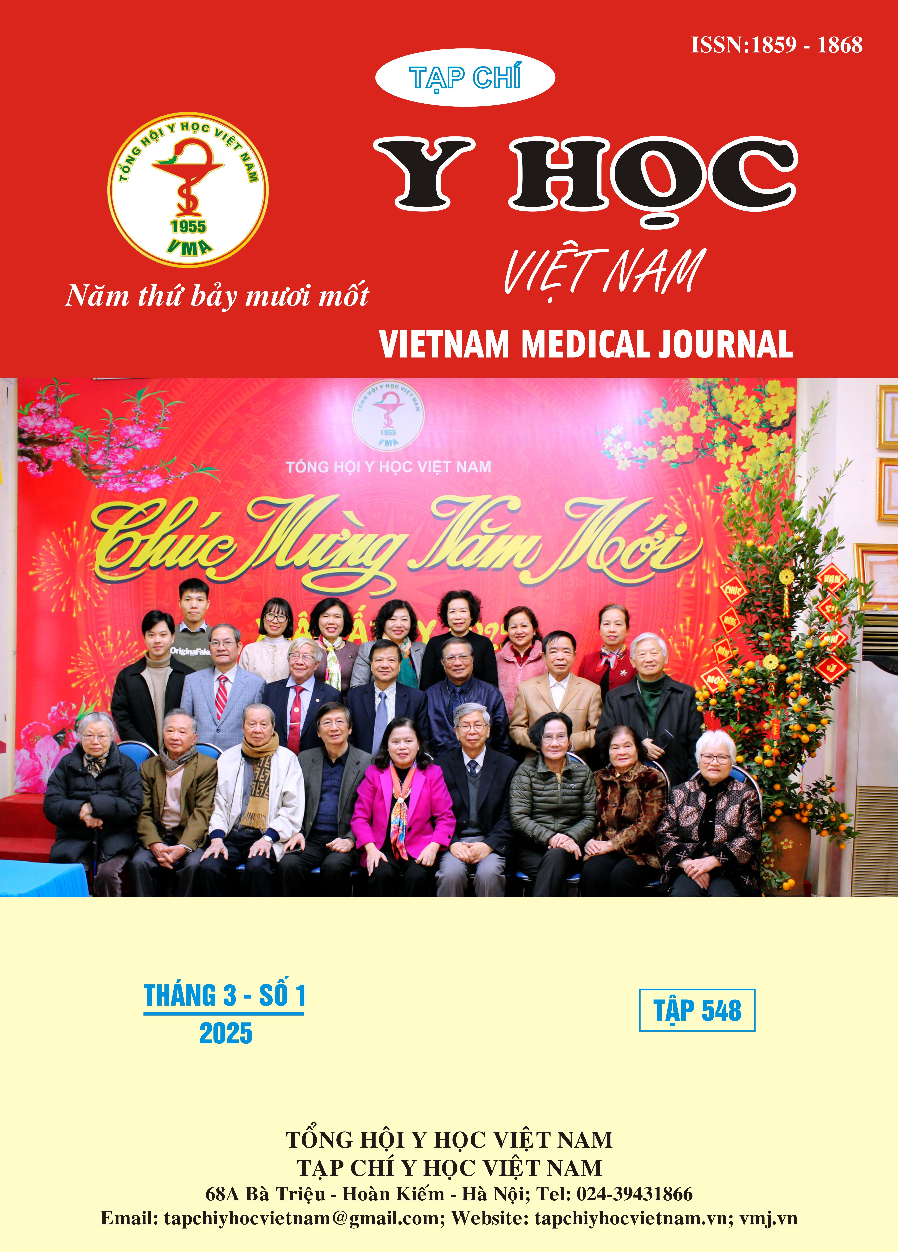REFERENCE VALUES, RELIABILITY, AND PREDICTIVE EQUATIONS FOR THE 6-MINUTE WALK TEST IN VIETNAMESE COMMUNITY-DWELLING ADULTS
Main Article Content
Abstract
Objective: To establish reference values, reliability, and predictive equations for the 6-Minute Walk Test (6MWT) in community-dwelling adults. Methods: Participants were healthy individuals aged 18 to 80 years living in the community, who performed the 6MWT twice. Demographic information, as well as heart rate before and after the test, were recorded. The Intraclass Correlation Coefficient (ICC) was used to assess test-retest reliability. The Bayesian Model Averaging method was applied to develop a predictive model for 6MWT distance. Results: A total of 300 individuals from four provinces participated in the study. The average walking distance for healthy community-dwelling individuals was 449 ± 70.4 m in the first test and 461 ± 75.1 m in the second test, with the second attempt being on average 11.8 m longer (95% CI: 7.1 – 16.5 m). The test demonstrated high reliability, with an ICC of 0.89. The Minimal Detectable Change at 95% confidence (MDC95) was 66.4 m. The predictive equation had a high R-square value, explaining 62% of the variance and including variables such as gender, age, height, and heart rate response. Conclusion: This study indicates that the 6MWT is highly reliable, providing reference values and a predictive equation for people in community-dwelling.
Article Details
Keywords
6-Minute Walk Test, 6MWT, reference values
References
2. Wang, C., Sheu, C.-F., & Protas, E. Test-retest reliability and measurement errors of six mobility tests in the community-dwelling elderly. Asian J Gerontol Geriatr, 2009, 4(1), 8-13.
3. Portney, L. G., & Watkins, M. P. Foundations of clinical research: applications to practice (Vol. 892): Pearson/Prentice Hall Upper Saddle River, 2009, NJ.
4. Nguyen, D. T., Penta, M., Questienne, C., Garbusinski, J., Van Chinh, N., & Sauvage, C. Normative values in healthy adults for the 6-minute and 2-minute walk tests in Belgium and Vietnam: implications for clinical practice. Journal of Rehabilitation Medicine, 2024,56.
5. Thaweewannakij, T., Wilaichit, S., Chuchot, R., Yuenyong, Y., Saengsuwan, J., Siritaratiwat, W., & Amatachaya, S. Reference values of physical performance in Thai elderly people who are functioning well and dwelling in the community. Physical Therapy, 2013,93(10), 1312-1320.
6. El-Sobkey, S. B. Influence of physical activity level on Saudi reference values of 6-minute walk test. Middle East Journal of Scientific Research, 2013,16, 164-171.
7. Salbach, N. M., O’Brien, K. K., Brooks, D., Irvin, E., Martino, R., Takhar, P., Howe, J.-A. Reference values for standardized tests of walking speed and distance: a systematic review. Gait and Posture, 2015,41(2), 341-360.
8. Kervio, G., Carre, F., & Ville, N. S. Reliability and intensity of the six-minute walk test in healthy elderly subjects. Medicine and Science in Sports and Exercise, 2003,35(1), 169-174.


